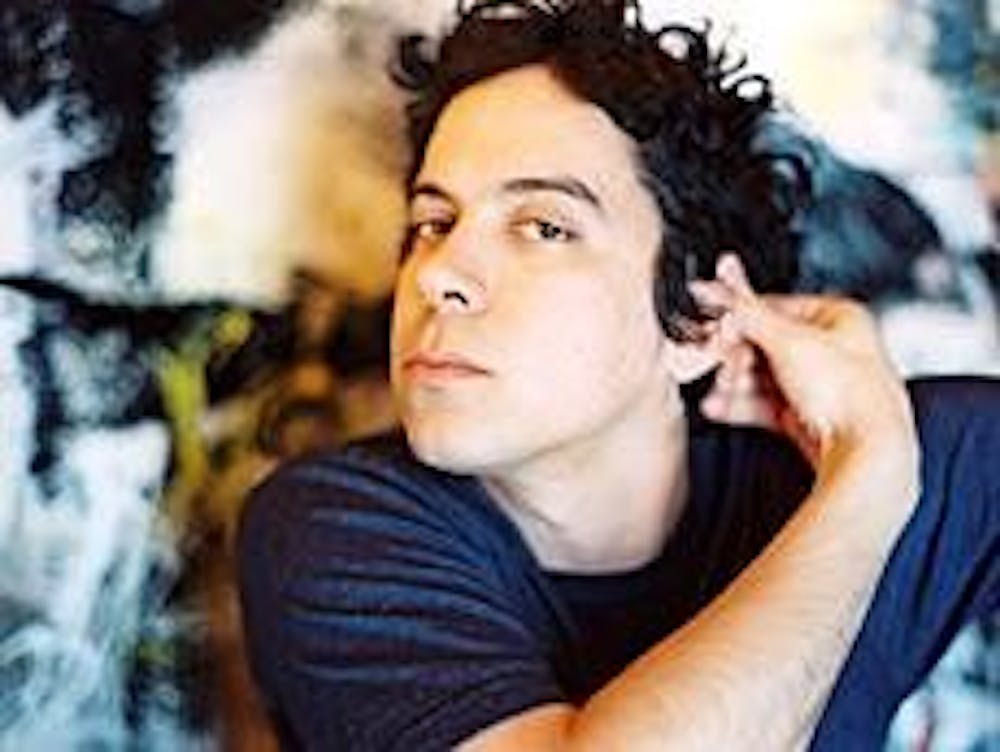M. Ward first took the Birchmere's bandstand stage alone on Friday night, his face shrouded by a faded baseball cap and his dark hair curling out from beneath it. In silence, he grasped the neck of his acoustic guitar and began playing.
To call Ward an accomplished acoustic guitarist would be a gross understatement. He is a virtuoso, though his abilities are not always apparent on his studio recordings.
In the live setting, however, his opening instrumental piece held no restraint. The fingers of his left hand dashed wildly across the fret board, while each finger of his right plucked strings in a style reminiscent of John Fahey's.
By himself, Ward could have capably entertained the audience for the remainder of the night. Yet on this tour a four-piece band accompanies him, including drummer Rachel Bloomberg, formerly of The Decemberists, and bassist/guitarist Mike Coykendall, whose attic space Ward has frequently used to record his haunting albums.
Ward's band filed on stage following the first song and immediately stuck a counterpoint to the back porch sounds of his solo guitar. Their first song together, a tune entitled "Chinese Translation," bore a sound that, in contrast to Ward's earlier work, was more robust.
Ward is in the midst of a musical evolution. His previous two works, "Transfiguration of Vincent" and "Transistor Radio," were both exceptionally beautiful in how they created an intimate listening environment through low-key, analog production and sparse accompanying instrumentals. "Post-War," Ward's latest album, maintains the low-key production but forgoes the sparse accompaniment in favor of clamorous folk-rock. The intimate listening experience is not lost in the transition.
On the Birchmere's stage in Alexandria, Va., Ward embraced the big band sound of "Post-War." And the small but charming venue served to complement his musical approach. Southern New Orleans food items were available to order. Delta-blues played over the Birchmere's sound system before and after the concert.
Ward, like the Birchmere, is an amalgam of the new and the old-quaint '50s radio meets indie-rock innovation amid peculiar, time-warped circumstances.
Many songs, especially from the new album, were augmented by two drum kits. A cover of the Daniel Johnston song "To Go Home" featured the two kits pounding in syncopated beats. Their sound rang thunderously through the small venue.
The usually quiet, piano bar blues of "Poor Boy, Minor Key" off of "Transfiguration" found its splintered guitar at the foreground, while Ward transformed the chilling riff of "Right in the Head" into a fractured jam worthy of Crazy Horse comparisons.
The final two songs of the first set, "Four Hours in Washington" and "Big Boat," also developed into extended jams, the former driven more by interplay between electric and acoustic guitars and the latter by a pulsing, exuberant piano.
Ward and his band exited the stage only to return moments later for the first of two encore sets. Though he appeared to appreciate the audience's enthusiasm, Ward said little during the duration of the concert. Only before new material did he announce a song's name, and occasionally he paused between songs to thank the audience and to mention that this was his first time playing in the area.
The final encore, a break-neck performance of "Transfiguration of Vincent," satisfied the audience so thoroughly that, when the house lights went up, another encore just wasn't needed.





